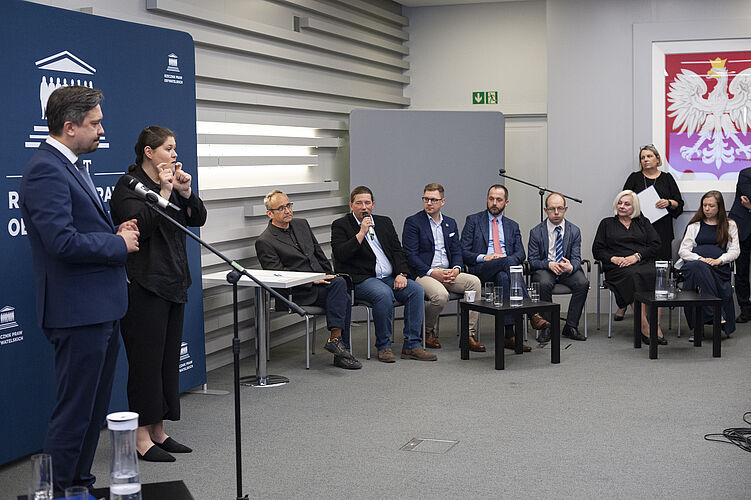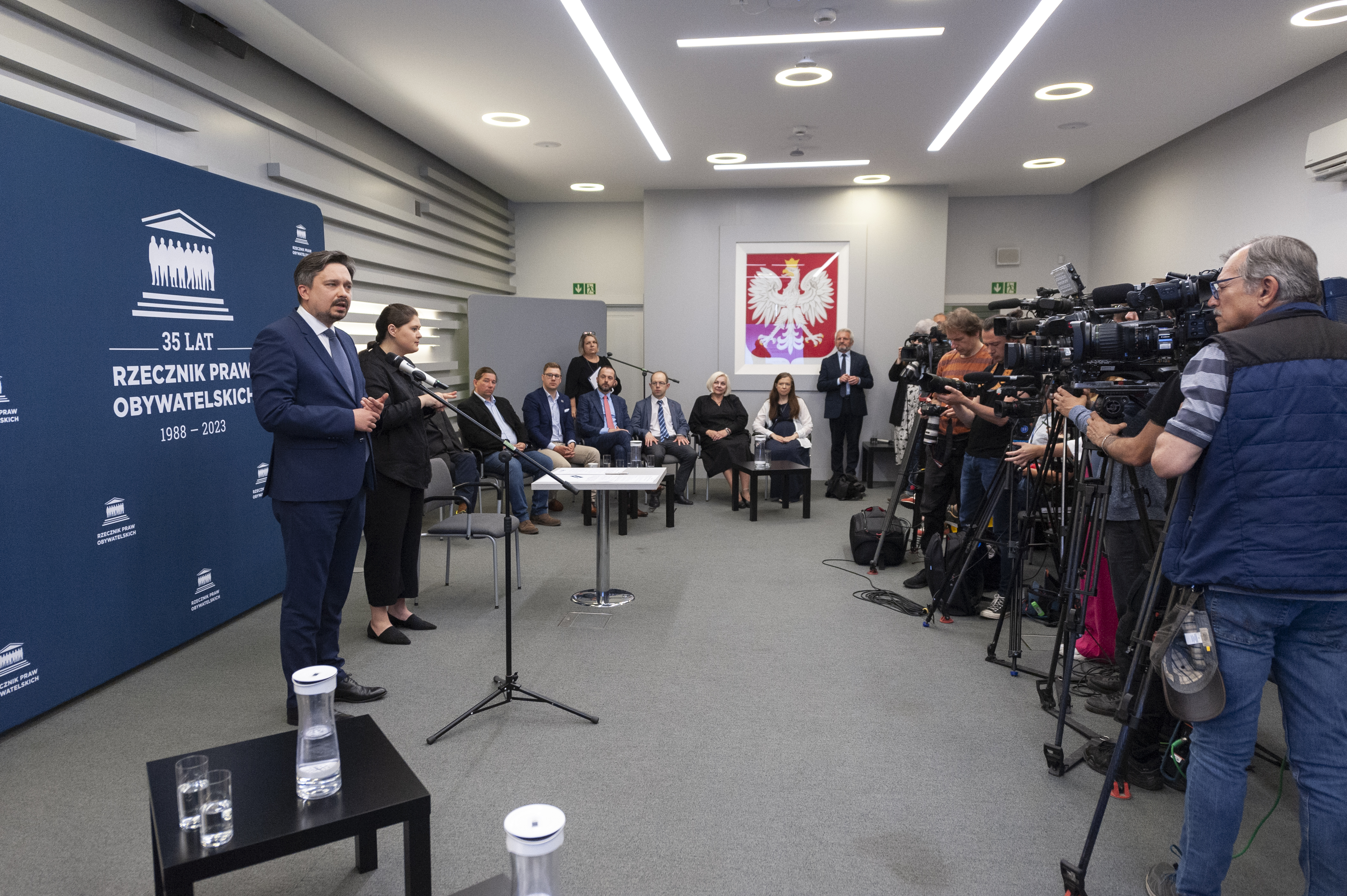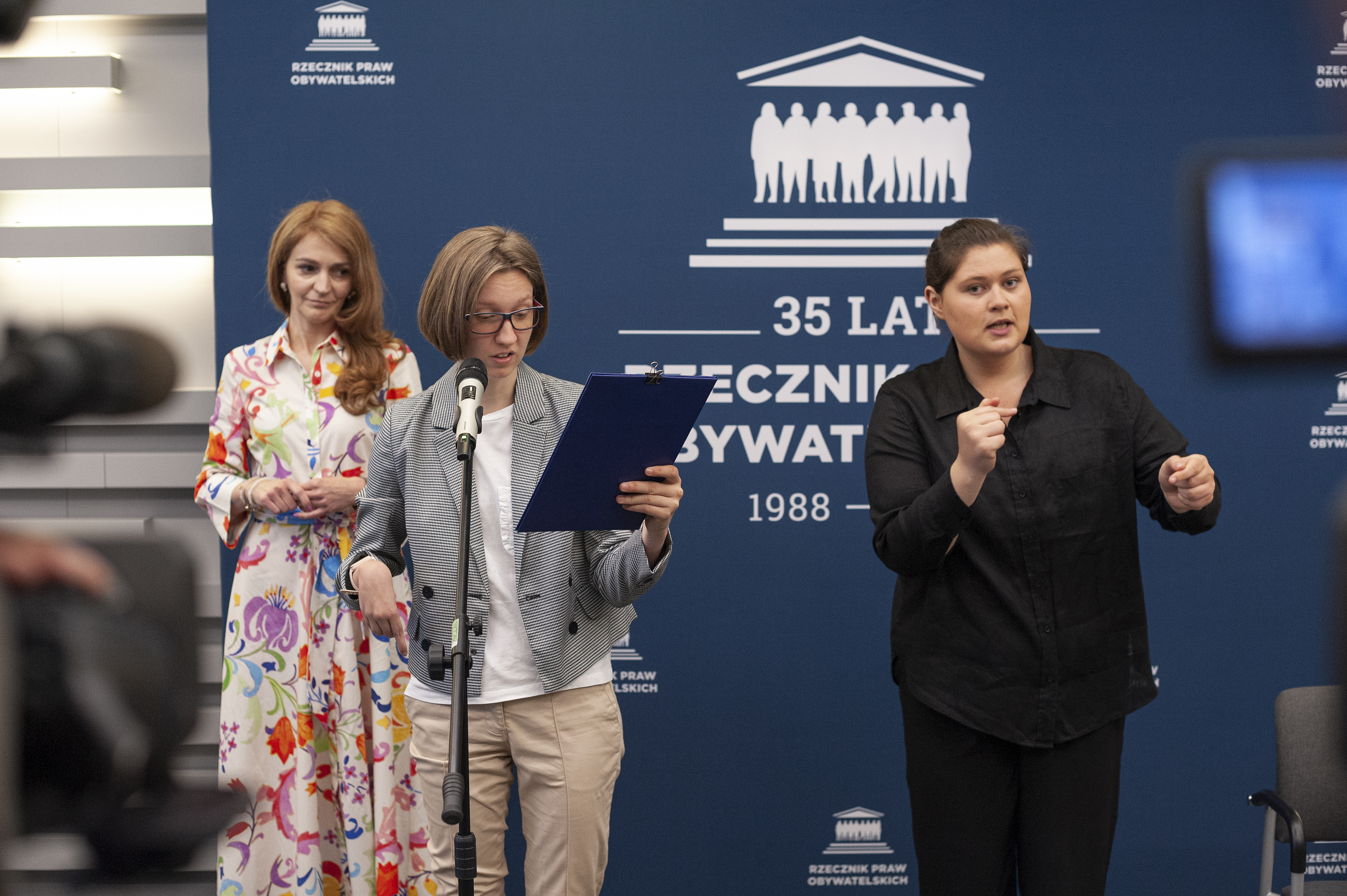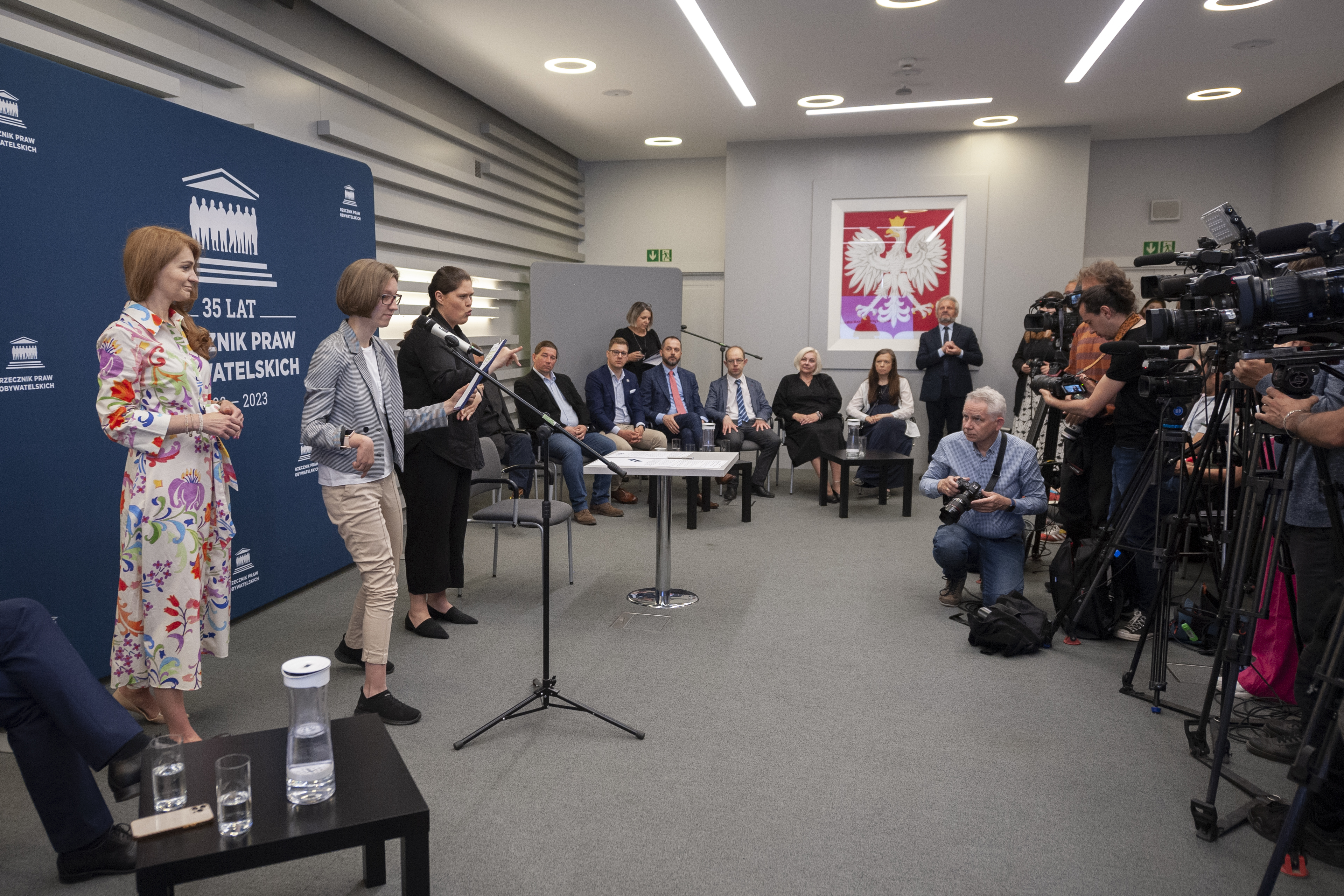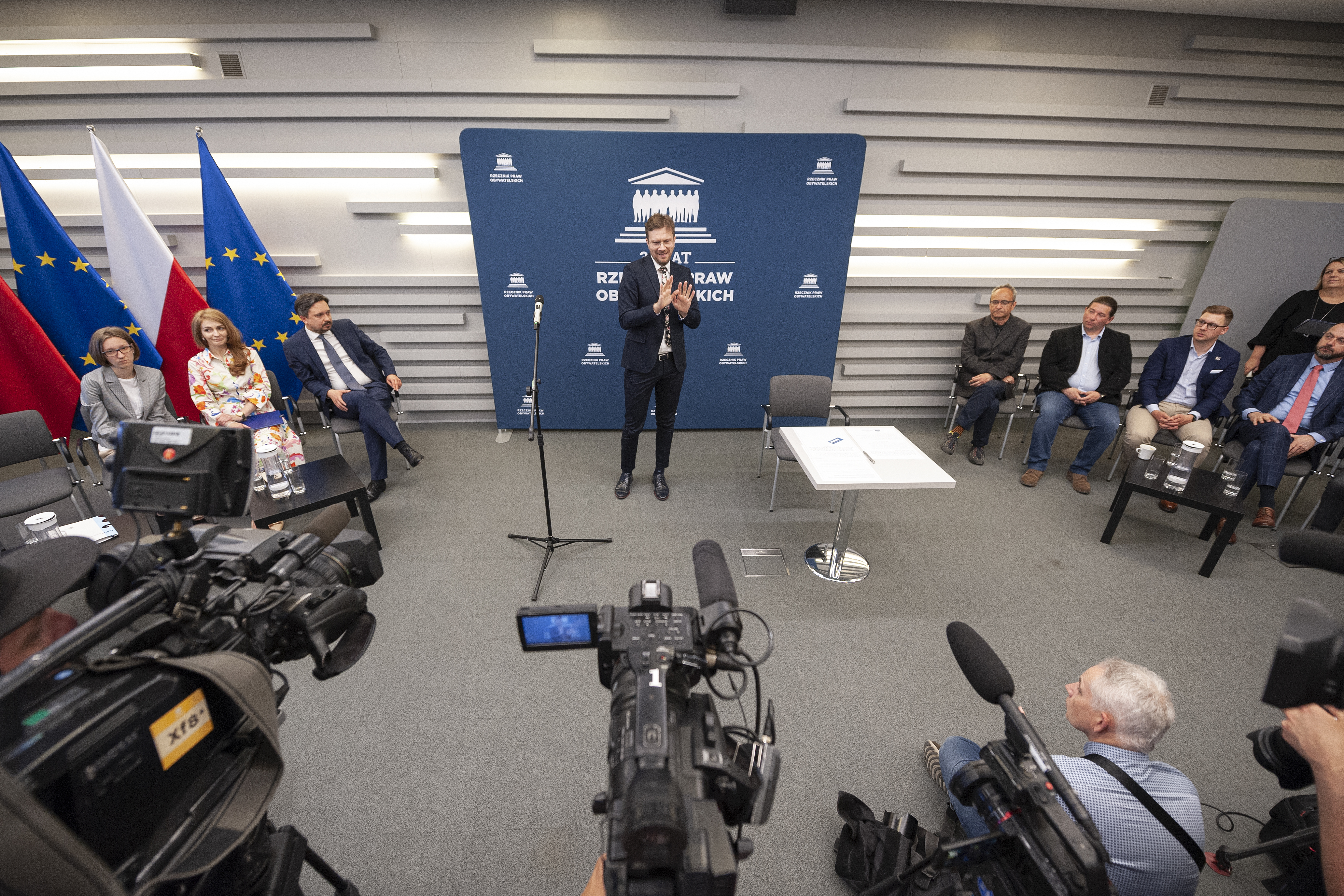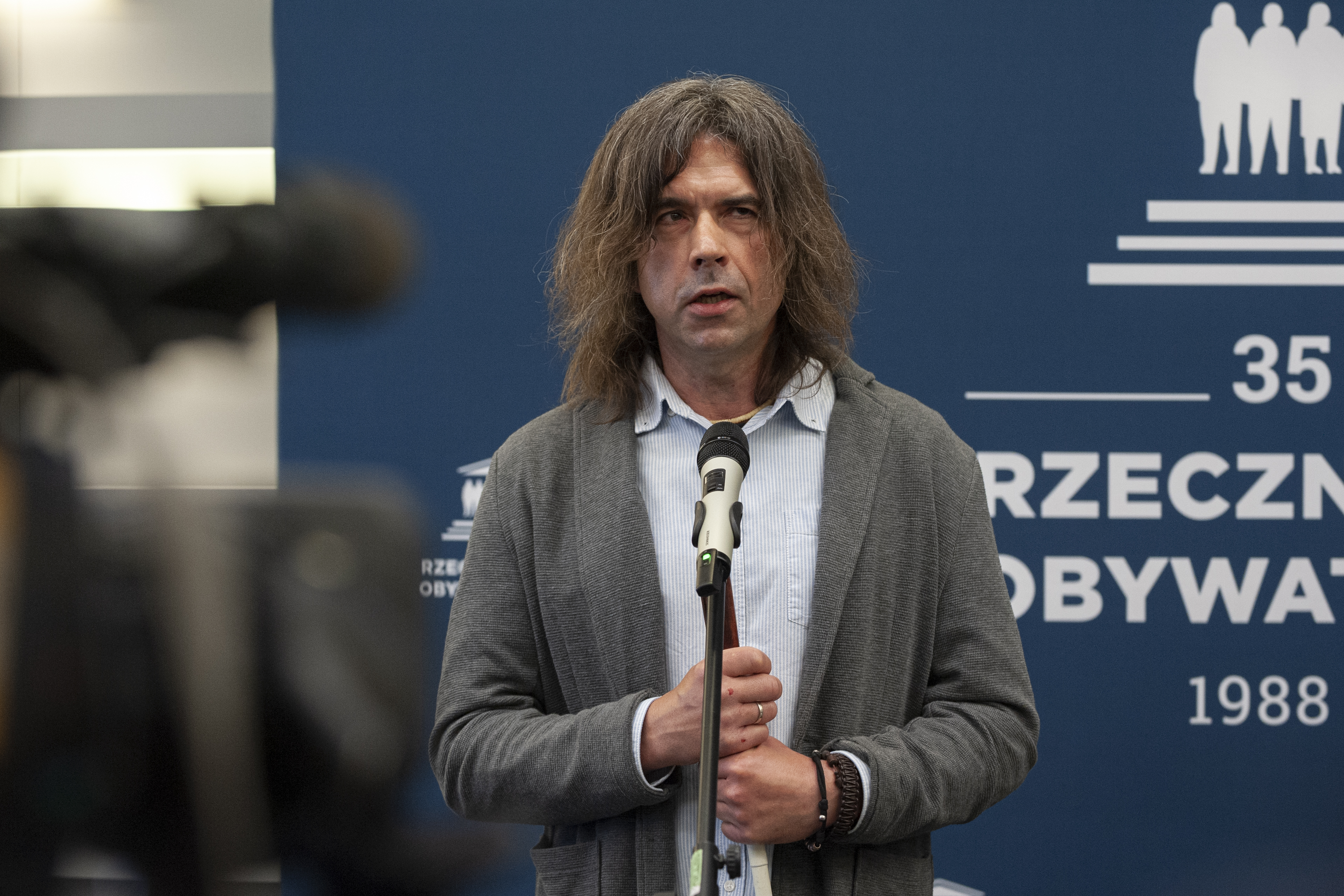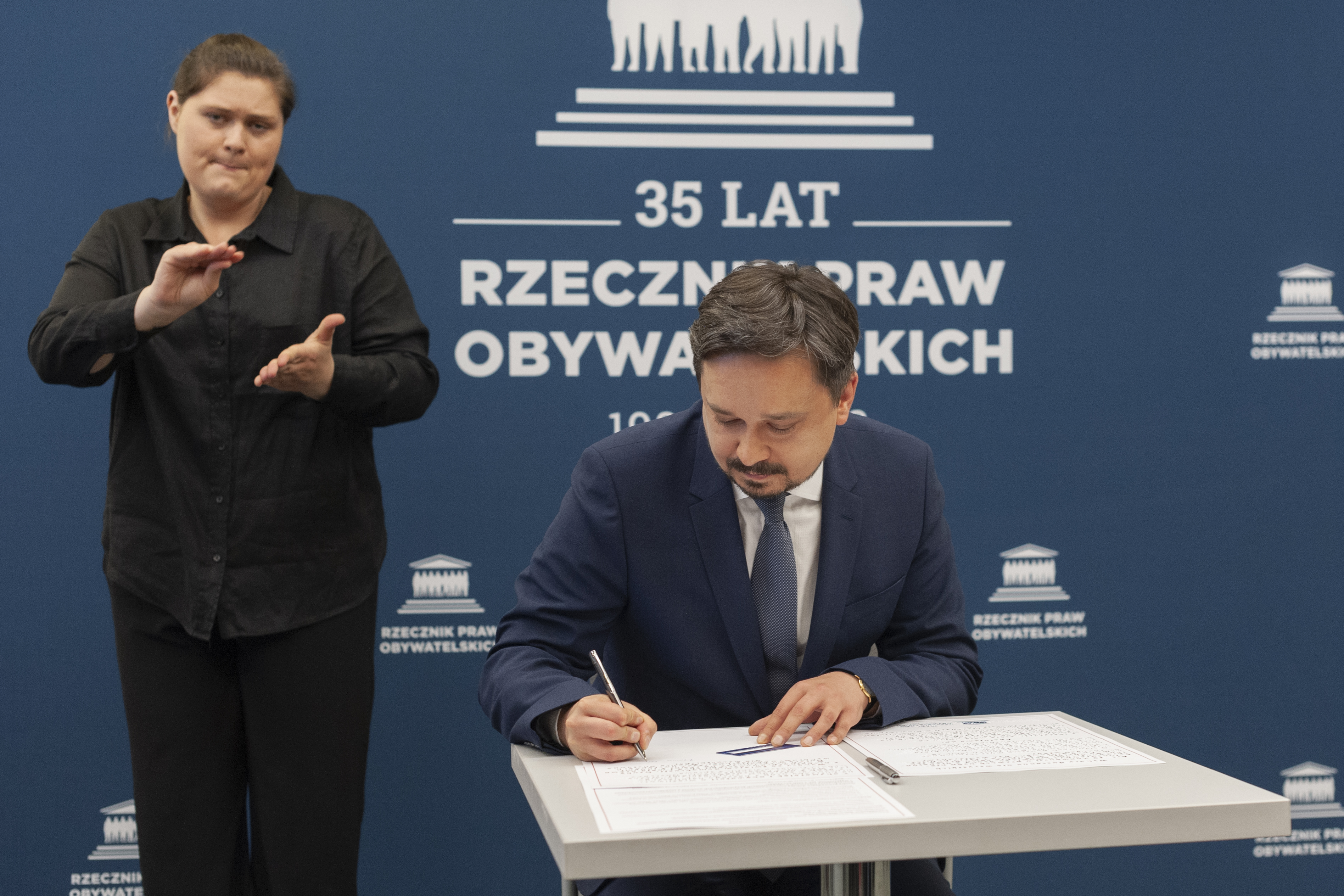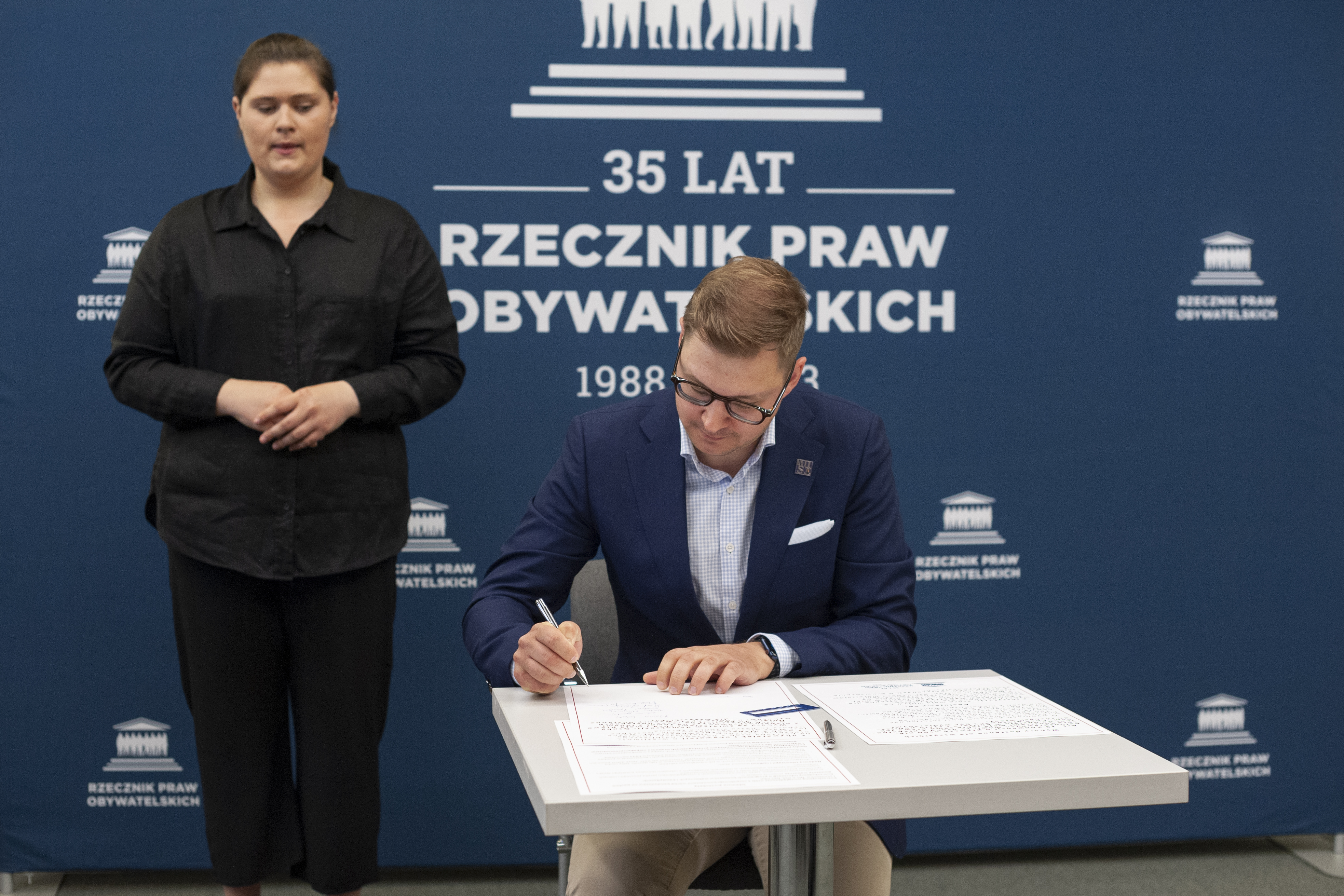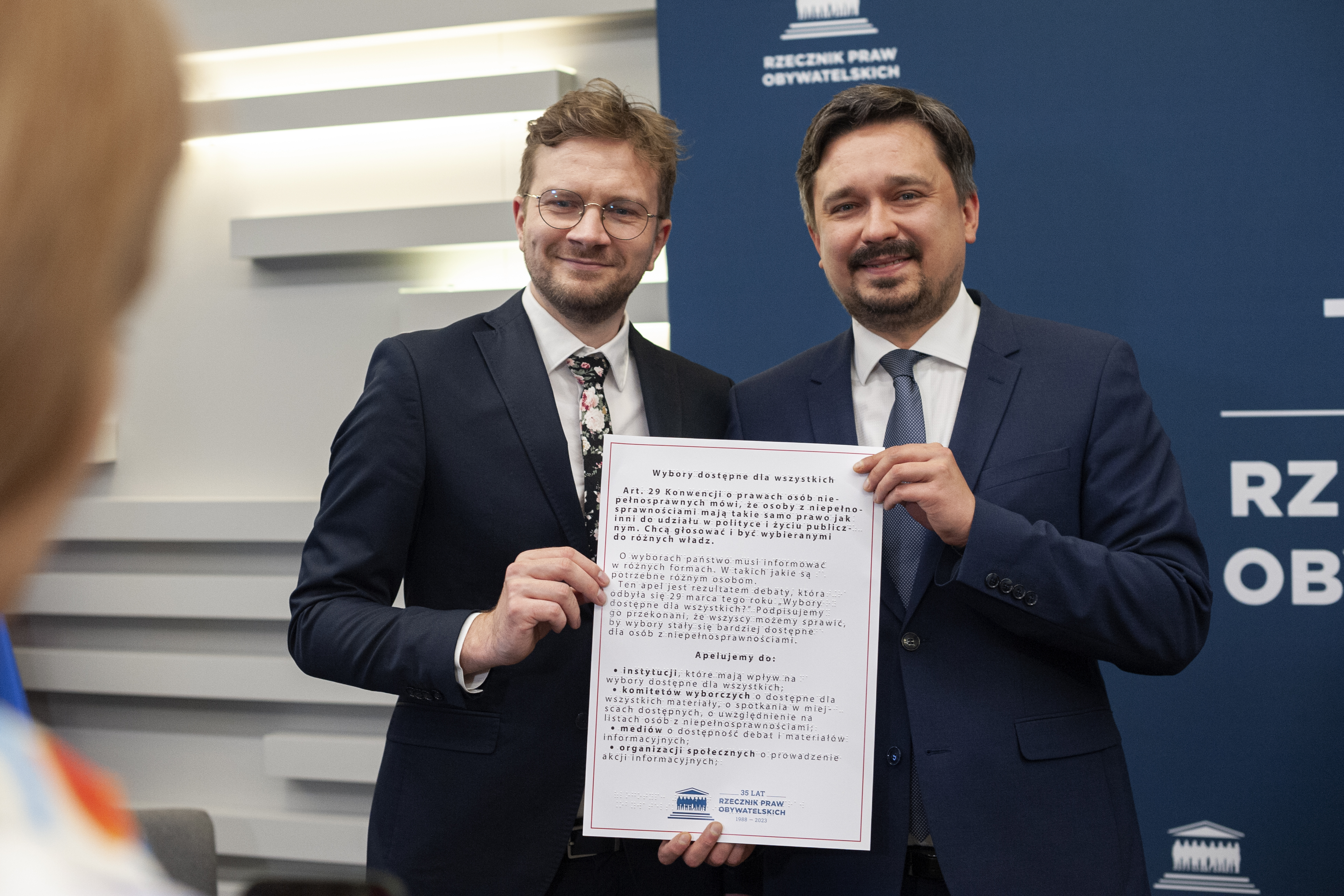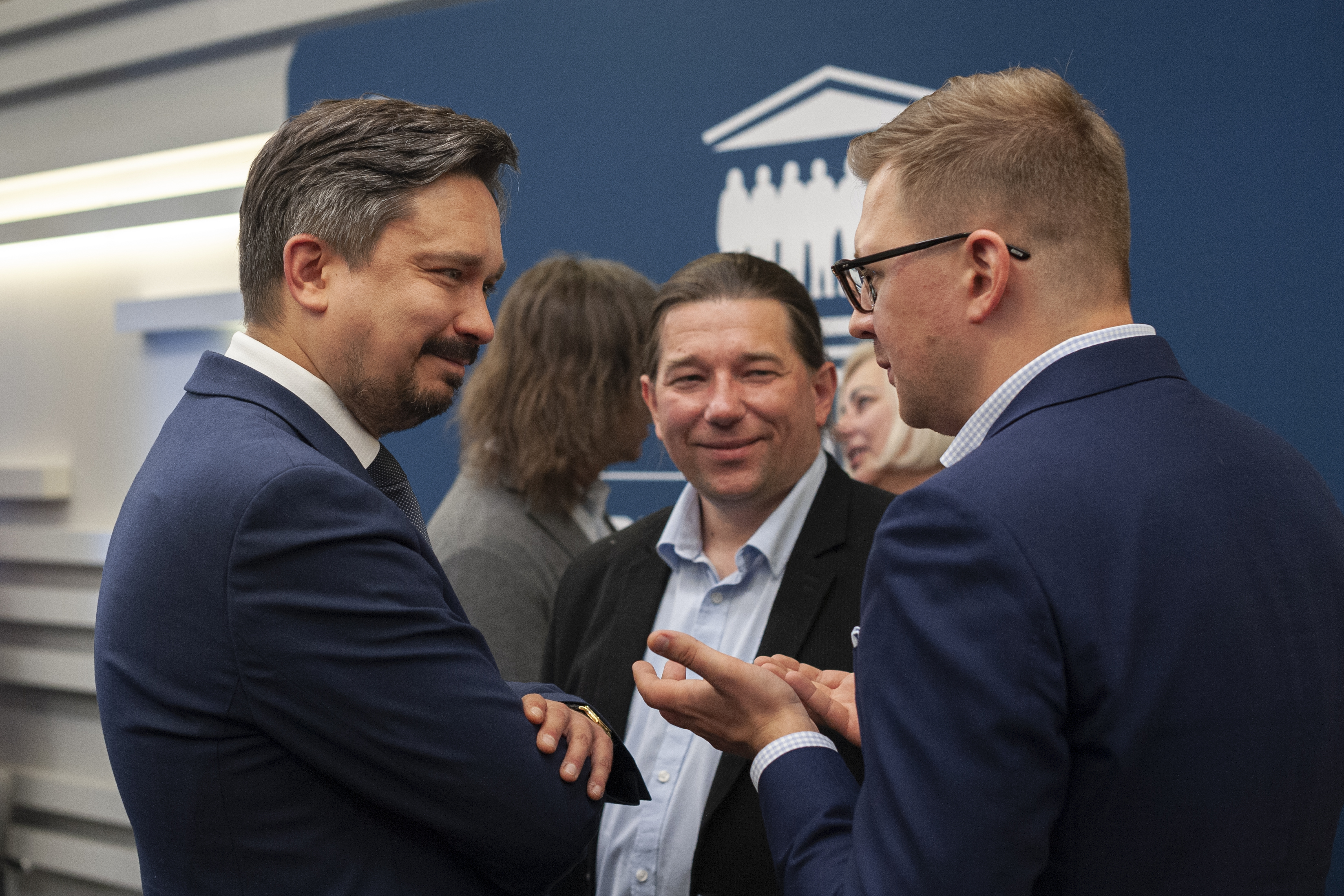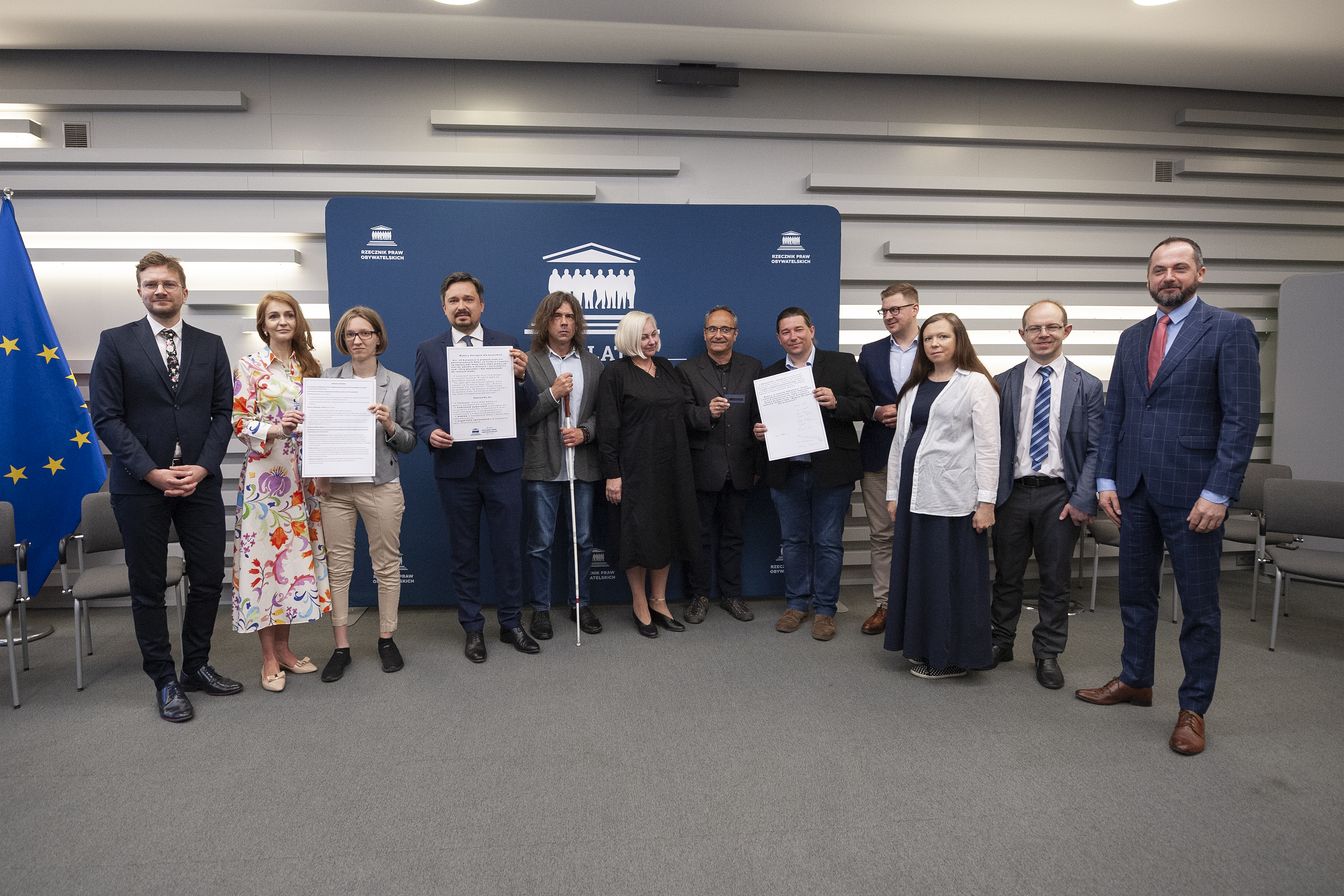PRESS CONFERENCE ACCOMPANIED BY SIGNING THE APPEAL FOR ACCESSIBLE ELECTIONS
This is one of the most important, if not the most important document I have ever signed since I took office as the Commissioner. It is a call for the protection of respect for human dignity and I warmly encourage you to support this initiative – Marcin Wiącek said while signing the appeal.
The appeal can be signed on the Avaaz platform
The appeal is the result of the debate "Accessible Elections for All?", which took place on the 29th of March this year. It was attended by experts and representatives of people with disabilities and their advocates working in NGOs.
The conference was opened by Marcin Wiącek, who noted that according to official data, there are more than 3 million people with disabilities in Poland. - In reality, there are many more - he noted.
- The Constitution of the Republic of Poland states the principle of universality of elections, granting every citizen the right to participate actively and passively in elections - he said and recalled that Poland has also been a party to the UN Convention on the Rights of Persons with Disabilities for almost 11 years.
- All the Commissioners for Human Rights, from the very beginning of this office being in existence, have been taking measures to ensure that elections are accessible to all people with disabilities - Marcin Wieck noted, adding that since 2007 the Commissioner’s office has been monitoring polling stations to check whether they are adequately adapted to the needs of people with disabilities.
- It is not only a matter of respecting the law, but also of simple human empathy and the need to see that some voters should cast their ballot in conditions of comfort, corresponding to the protection of human dignity - he explained, adding that the data obtained from monitoring reports is very worrying.
- The most recent monitoring of 2019 showed that around 80 per cent of the polling stations surveyed were not properly adapted - he pointed out. He added that it is not just about the polling station itself, but also its surroundings. He explained that there may be situations where a building where the voting takes place is adequately adapted, but access or journey to it is difficult or even impossible.
The Commissioner recalled that the accessibility of elections was discussed by the participants of the debate organised by the Office of the Commissioner for Human Rights and the International Institute of Civil Society (MISO) in March this year.
- The conclusions of the debate were unequivocal. Elections are not accessible to everyone, they are not accessible to many people with disabilities - he pointed out, adding that the participants in this debate made a point of formulating an appeal to state institutions, the media, NGOs, election committees, and citizens.
- An appeal not only to apply the law, but also to talk about the whole electoral process. Not only about the act of voting itself, but also about the electoral campaign and the participation of people with disabilities in the electoral process, both as citizens wishing to vote and as citizens wishing to exercise their right to stand as a candidate - he stressed.
- Today we are meeting to sign this appeal and to make everyone aware that a large part of Polish citizens want to exercise their right to vote on an equal footing with others. And constitutional principles and universal values, such as human dignity, speak in favour of doing everything to make this goal become a reality – Marcin Wiącek emphasised.
The text of the appeal were read out jointly by representatives of the Polish Association for People with Intellectual Disability (PAPID) Monika Zima-Parjaszewska, President of the PAPID Main Board, and self-advocate Katarzyna Łozińska.
Bartosz Marganiec, the Deaf rights activist, then spoke. Thanking for the appeal being a very important initiative, he said that he had voting rights for 19 years and was not able to fully exercise them - I grew up as a Deaf person and always faced many barriers. I wondered how to fully exercise my right to vote - he said.
He pointed out that accessibility has got many aspects, and for the Deaf people the most important one is information and communication accessibility.
He considered it important how accessibility will be ensured before and after the elections, as it is not just about the moment of voting itself - We don't know what is being said at pre-election meetings. How can I find out about a candidate's programme and enter the discussion? I can't do that. That is why I ask the election committees and staffs to remember what this appeal contains - he stressed. He pointed out that the very fact that there is a sign language interpreter on television is a sham if the picture of the interpreter is too small. Indeed, the interpreter should occupy at least 1/8 of the screen.
Robert Więckowski, Vice President of the Board of the Foundation for Barrier-free Culture, pointed out that access to visual information is important for visually impaired people. - The mixture of light, shape, colour and space, which is natural to others, is completely inaccessible to us - he noted.
This problem includes ballot papers, which are difficult for blind people to use. Overlays that were introduced a few years ago to allow people to cast their own ballot have improved the situation, but assistance with the voting process is still necessary. That is why Robert Więckowski asked the people who sit on election committees for sensitivity and kindness and for help in getting to the ballot box.
After the speeches, the conference participants signed the appeal.
- This is one of the most important, if not the most important document I have ever signed since I assumed the office of Commissioner. It is a cry for the protection of respect for human dignity and I warmly encourage you to support this initiative - Marcin Wiącek said signing the appeal.
Apart from the Commissioner, the appeal was signed by Monika Zima-Parjaszewska, Bartosz Marganiec, Robert Więckowski and Edward Bolak from the Our Ombudsman initiative, Avalon Foundation CEO Krzysztof Dobies, Managing Director of the International Institute for Civil Society (MISO) Michał Kiśluk, President of the General Board of the Polish Deaf Association Krzysztof Kotyniewicz, President of the Polish Forum for People with Disabilities Krzysztof Kurowski, President of the Board of the Integration Foundation Ewa Pawłowska and Monika Szczygielska, accessibility specialist, University of Warsaw.
APPEAL - Elections open to all!
The call for accessible elections has been addressed to institutions that affect the accessibility of elections, electoral committees, the media, community organisations and citizens. The signatories also address people with disabilities pointing out that accessible elections are a common cause and that their voice and involvement are of utmost importance.
Among other things, the signatories call for the provision of election materials that are accessible to all and for election meetings to be held in accessible locations. People with disabilities should also be included on the electoral lists. They point out the need to ensure the accessibility of election debates and information materials in the media and to conduct information campaigns. They draw attention to the responsibilities of the election administration and local authorities for providing accessible polling stations.
- Elections are a celebration of democracy. People with disabilities want and have the right to participate in elections on an equal footing with others - they emphasize and invite to join the coalition for accessible elections and to sign the appeal.
The call for paying attention to the obligation to ensure that elections are accessible and properly implemented was made by participants in the debate "Elections accessible to all?" organised on 29 March 2023 by the CHR and the International Institute of Civil Society (MISO).
photo: Grzegorz Krzyżewski/CHR office


